Match of the Day: 50 years of broadcasting celebration
- Published
Memories of Match of the Day
The BBC will celebrate 50 years of its iconic football television show Match of the Day with a special programme on Friday at 22:35 BST on BBC One (22:50 in Northern Ireland).
Packed with classic archive material, it charts the evolution of football's most famous programme and features new contributions from a host of footballing glitterati, including Jose Mourinho, Ryan Giggs, Thierry Henry, Gary Lineker, Wayne Rooney, Des Lynam and Alan Hansen.
As part of the celebrations, legendary commentator Barry Davies will make a one-off special return for the Crystal Palace v West Ham match.
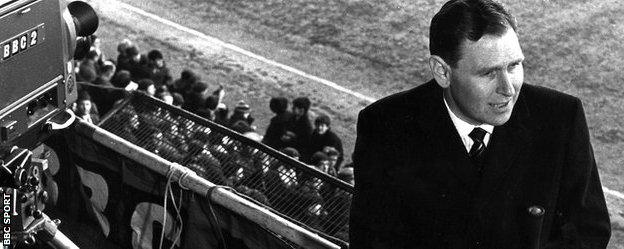
Kenneth Wolstenholme opened the first Match of the Day as a Beatles song played over the Anfield PA system
Davies joins the team of Guy Mowbray, Jonathan Pearce, Steve Wilson, John Motson and Alistair Mann for this Saturday's games.
We look at some of the key facts and figures from six decades of the legendary programme:
The first Match of the Day - on 22 August, 1964 - featured Liverpool's 3-2 win over Arsenal 3-2, with the crowd inside Anfield outnumbering the audience on BBC Two - only available in London at the time - two to one.
Sugar and Morgan: MOTD memories
With "She Loves You", the hit song from The Beatles, bursting out of the Anfield PA system, presenter Kenneth Wolstenholme told viewers: "Welcome to Match of the Day, the first of a weekly series coming to you every Saturday on BBC Two. As you can hear, we're in Beatleville."
Match of the Day was originally intended as a one-off series, a trial run for the 1966 World Cup.
In 1965, several clubs tried to block the programme's move to BBC One, which was available to many more viewers, for fear it would hit ground receipts. A compromise was reached and the BBC agreed not to reveal the televised Saturday match until all games had ended.
Match of the Day's main presenters |
|---|
Kenneth Wolstenholme: 1964-1969 |
David Coleman: 1968-1973 |
Jimmy Hill: 1973-1988 |
Des Lynam: 1988-1999 |
Gary Lineker: 1999-present |
Wolstenholme was a former RAF bomber pilot, flying 100 missions in World War Two by the age of 23. He commentated on 23 consecutive FA Cup finals and five World Cups, coining the immortal phrase "they think it's all over… it is now".
The story of the MOTD theme tune
The first colour broadcast - on 15 November, 1969 - featured Liverpool's 2-0 win over West Ham.
In 1969, the programme became live and studio based, rather than being pre-recorded at the ground of the featured match, and there were two games shown each week.
Barry Stoller's classic theme tune "Match of the Day" was commissioned in 1970 to replace the original theme "Drum Majorette" by Major Leslie Statham, a former Director of Music for the Welsh Guards. In 2010, a survey by the Performing Rights Society for Music placed it as the most recognisable British TV theme tune.
In 1971, slow-motion replays were used on the show for the first time.
Motty's magnificent run |
|---|
John Motson joined the BBC as a Radio 2 sports presenter in 1968 and is the longest serving commentator on the programme, still going strong after 43 years and approximately 2,000 games. |
The first live league game on the BBC was shown on 16 December, 1983, between Manchester United and Spurs. The BBC originally broadcast its live matches on a Friday before switching to Sundays the following year.
Following a period without league highlights, Match of the Day returned to witness the start of the Premier League era in 1992 with the suave Des Lynam in the chair.
On 19 August, 1995, Alan Hansen uttered the now famous remark "you can't win anything with kids" after Aston Villa had beaten Manchester United 3-1. As Hansen would be constantly reminded, United went on to win the double that season and countless other trophies with that group of young players.
Brand behind the scenes at MOTD
On 15 August, 2004, MOTD2, a new accompaniment to the main programme, was broadcast for the first time, presented by Adrian Chiles.
Stats guru Albert Sewell worked on MOTD for 37 years and, having been regularly referred to as "our man Albert" by Lynam, once appeared on the programme to prove he was a real person. When he retired in 2005, his personal records library included 24,000 player transfers and 6,400 managerial changes. John Motson described his pre-match briefings as "six pages of editorial gold dust".
On 21 April, 2007, Jacqui Oatley became Match of the Day's first female commentator - the game was Fulham v Blackburn. Celina Hinchcliffe became the first female presenter in February 2005 and Gabby Logan has since become a regular replacement for Gary Lineker.
Earlier in 2014, Hansen decides to step down after 22 years as MOTD's leading analyst. His first appearance was in 1992 and his last came on 11 May, 2014.
To mark the 50th anniversary season, the programme features a new title sequence, taking the audience on a journey through the last five decades of television football coverage. There will also be a few extra touches of nostalgia on the anniversary weekend itself, on Saturday, 23 August.
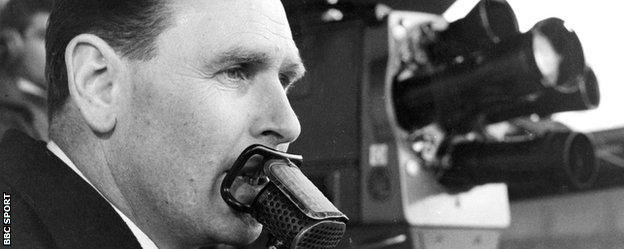
Kenneth Wolstenholme was the first Match of the Day presenter
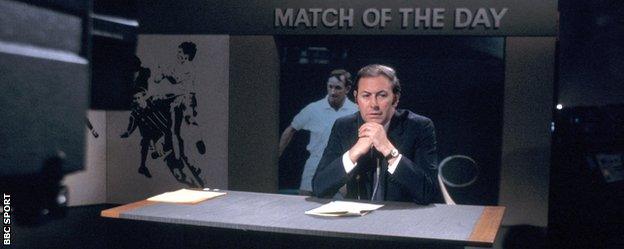
David Coleman, who died in December 2013, emulated Wolstenholme by being a presenter and chief football commentator
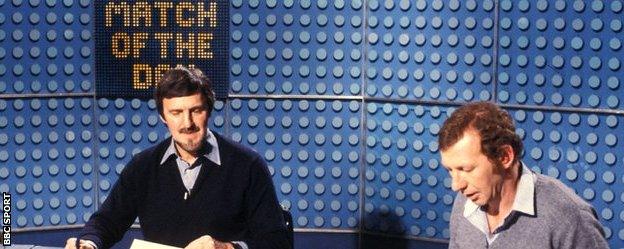
Jimmy Hill came to the BBC from ITV and formed a popular partnership with Bob Wilson
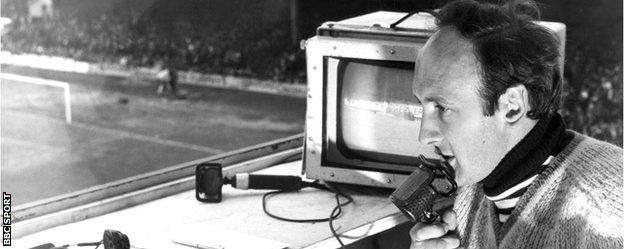
Barry Davies was one of MOTD's most highly-regarded commentators and was on the programme from 1969-2004
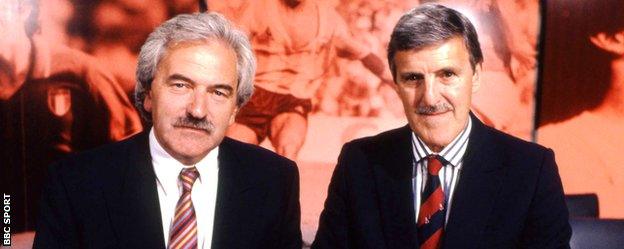
The cool, calm and collected Des Lynam took charge in the late 1980s as Jimmy Hill moved to an analyst role
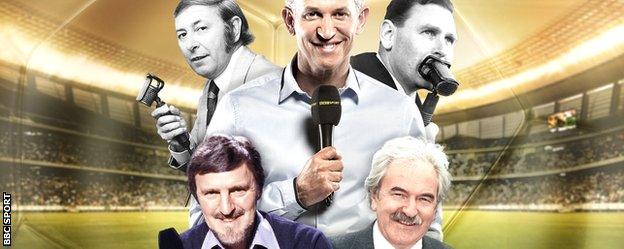
Match of the Day's five main presenters from 1964 to the present day
- Published21 August 2014
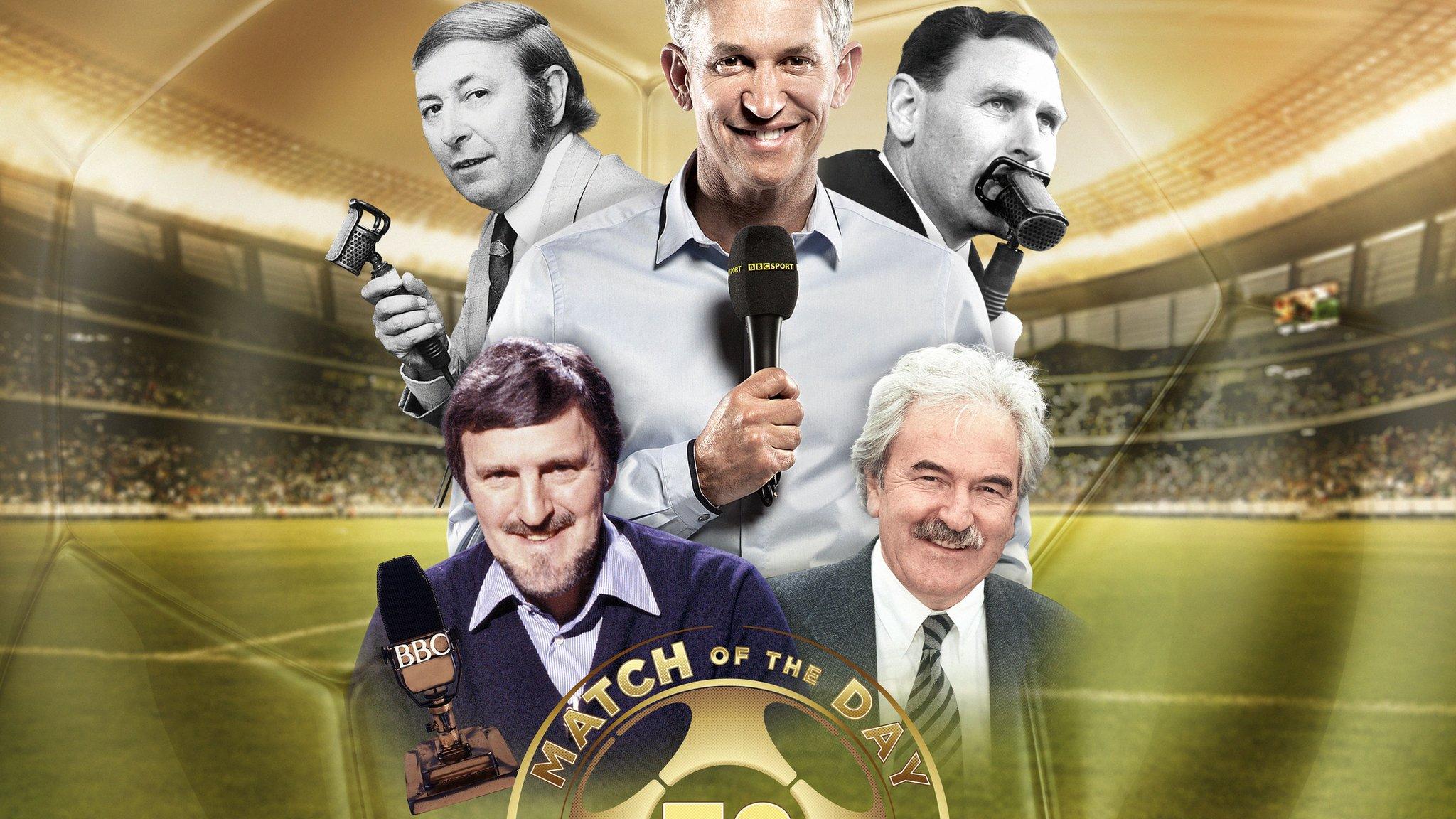
- Published21 August 2014
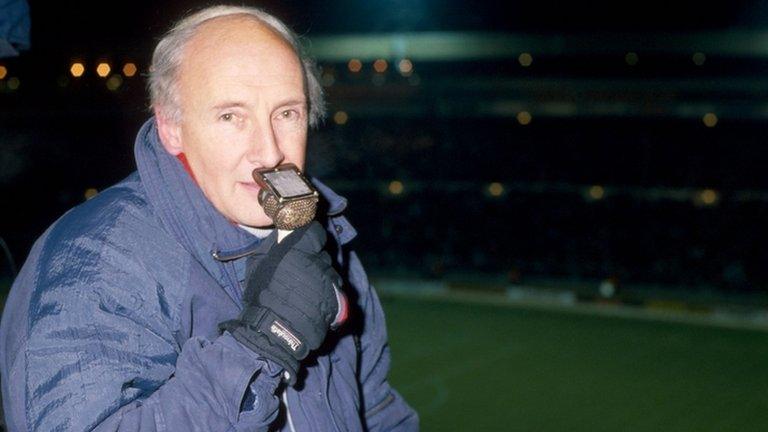
- Published31 October 2011
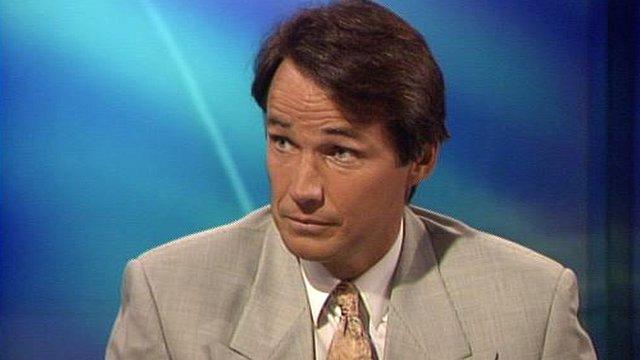
- Published12 May 2014
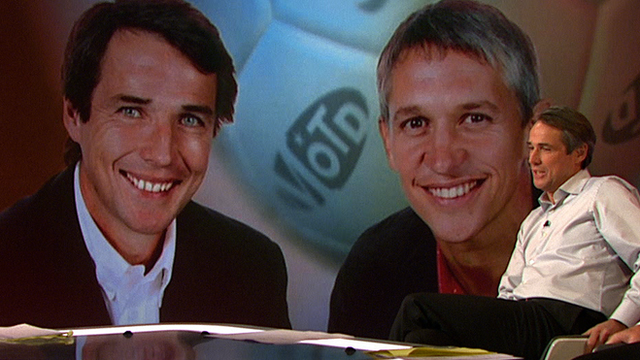
- Attribution
- Published21 December 2013
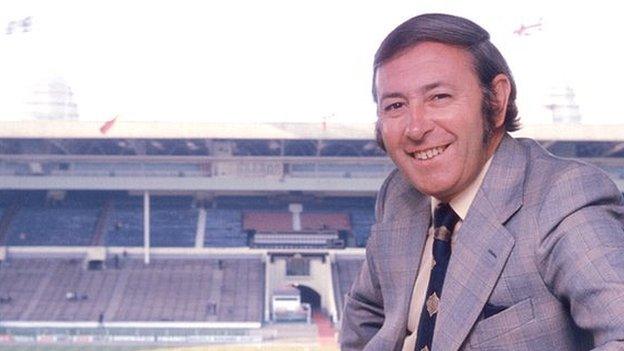
- Published12 May 2014
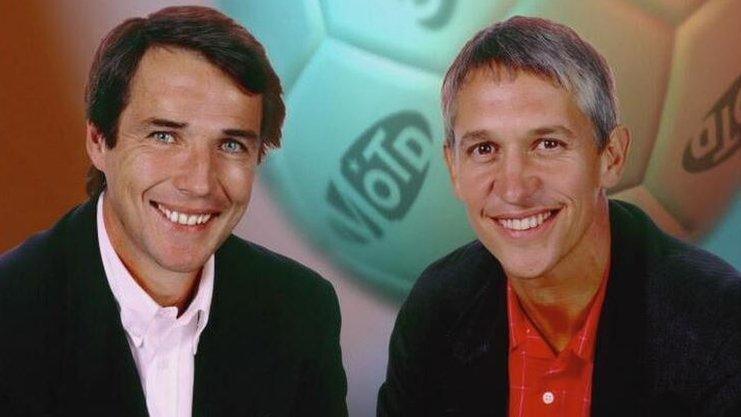
- Published16 August 2014
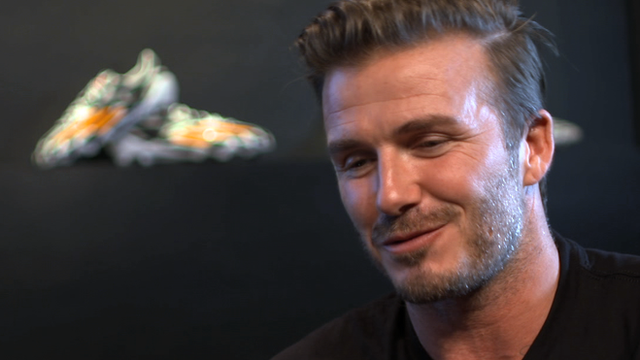
- Published7 June 2019
